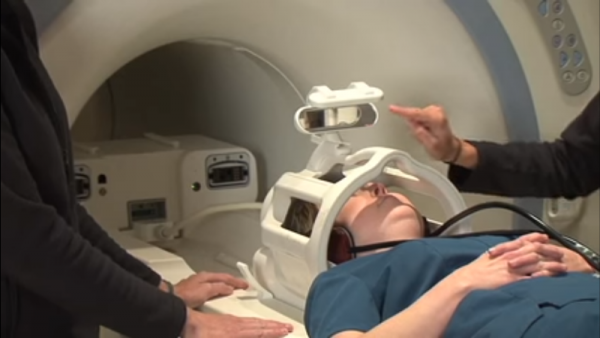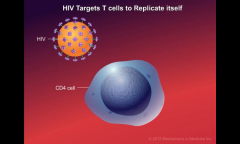By KM Diaz, | March 14, 2017

The new study which involves MRI scan, it can help those who have high risks for follow-up tests. The research team analyzed the data of 146 HIV-positive patients that were suspected to have cognitive problems from 2011 until 2015.
Scientists have discovered a new way to detect the presence of HIV in the brain even though the patient is taking effective treatment. Using the MRI, the virus can be spotted if it is persisting in the brain.
Patients can have the presence of HIV in the brain though the disease is kept under control by some effective drugs. That's why the scientists from UCL used Magnetic Resonance Imaging (MRI) to search for HIV that can possibly reside in the brain.
Like Us on Facebook
AIDS can cause brain problems such as dementia before the effective for HIV arrives, according to Professor Ravi Gupta senior author of the study from UCL Infection & Immunity. There are reportedly half of the HIV patients that have cognitive impairment, and the virus spreads in the brain by ten to fifteen percent.
As of now, doctors perform the lumbar puncture to confirm the HIV in the brain. The procedure involves by inserting the needle in the back particularly in the spinal cord to collect fluids. The method is quite invasive that requires the patient to stay at the hospital for several hours after it was done.
But in the new study which involves MRI scan, it can help those who have high risks for follow-up tests. The research team analyzed the data of 146 HIV-positive patients that were suspected to have cognitive problems from 2011 until 2015. There are 22 patients or 15 percent traces of active HIV in the brain. Also, the appearance of their white matter shows significant signs that HIV is ten times more likely to persist compared to those healthy individuals with a normal white matter.
If such changes occur in the brain specifically in the white matter, the condition is called diffuse white matter signal abnormalities. It can activate the inflammation in the brain due to HIV infection that may lead to permanent cognitive problems.
Even though the patient is virally suppressed with HIV treatment, it does not mean that the patient is safe with HIV-related inflammation problems, Professor Gupta noted. MRI can diagnose these patients if there is an elevated presence of HIV inflammation.
It can also identify if HIV already spreads throughout the brain, so that the treatment may be changed with an additional drug for the blood-brain barrier to control the development of the infection before in enters the brain.
-
Use of Coronavirus Pandemic Drones Raises Privacy Concerns: Drones Spread Fear, Local Officials Say

-
Coronavirus Hampers The Delivery Of Lockheed Martin F-35 Stealth Fighters For 2020

-
Instagram Speeds Up Plans to Add Account Memorialization Feature Due to COVID-19 Deaths

-
NASA: Perseverance Plans to Bring 'Mars Rock' to Earth in 2031

-
600 Dead And 3,000 In The Hospital as Iranians Believed Drinking High-Concentrations of Alcohol Can Cure The Coronavirus

-
600 Dead And 3,000 In The Hospital as Iranians Believed Drinking High-Concentrations of Alcohol Can Cure The Coronavirus

-
COVID-19: Doctors, Nurses Use Virtual Reality to Learn New Skills in Treating Coronavirus Patients











